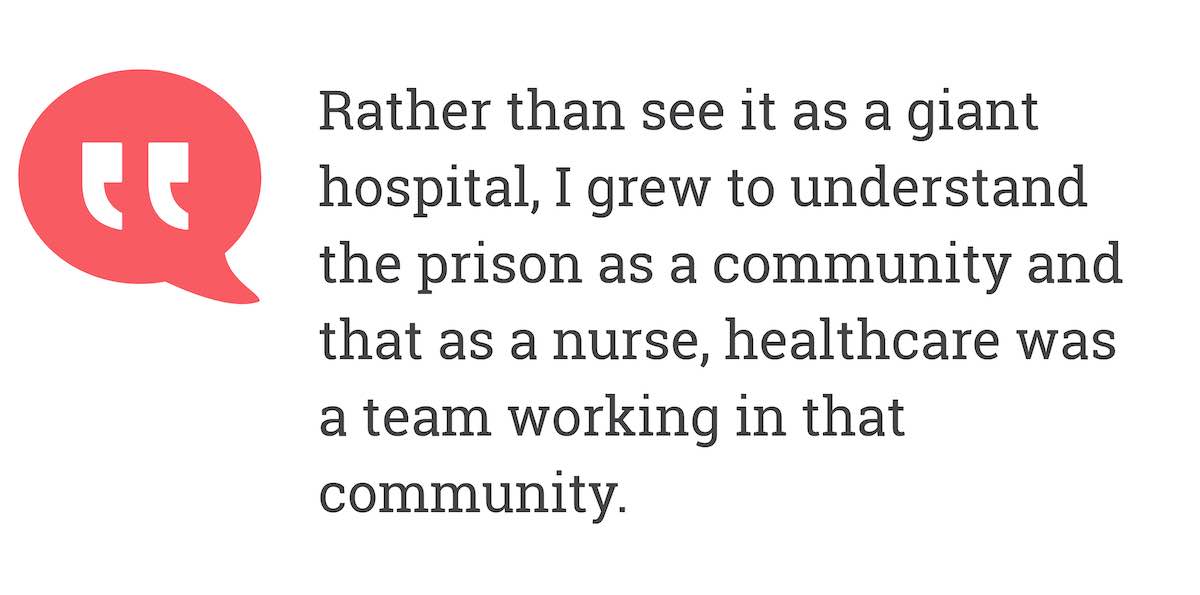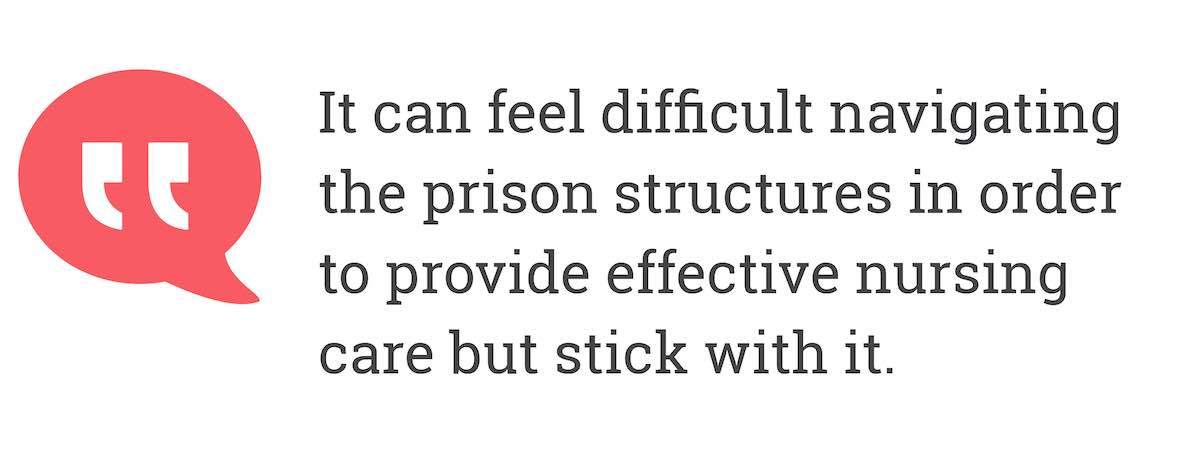- 14 July 2020
- 11 min read
Things You Should Know Before Becoming A Prison Nurse
Subscribe "It was a steep learning curve both professionally and personally and I would honestly recommend any nurse spend some of their career working in a prison."
"It was a steep learning curve both professionally and personally and I would honestly recommend any nurse spend some of their career working in a prison."To succeed as a Prison Nurse, it’s important to get out of the hospital mindset. Former Prison Nurse, Laura Woods, lays out several points to consider for anyone looking to work in this sector.
Topics covered in this article
Getting Used To The Environment
Learning And Maintaining Boundaries
Looking After Your Personal Well-Being
Introduction
I didn’t set out to work in prisons.
I don’t think many people do.
But after working as an RMN for 9 years in Psychiatric Intensive Care I moved to manage an Inpatient Unit inside a male remand prison.
The prison had over 800 men incarcerated inside, ranging from 18-year olds to 93-year olds.
I had worked with men who had criminal histories in mental health wards and was used to managing disturbed and challenging behaviour.
However, working in a prison is a totally unique experience and one which I will never forget.
It was a steep learning curve both professionally and personally and I would honestly recommend any nurse spend some of their career working in a prison.
Any previous clinical skills and experience can help prepare nurses working in prisons but there are aspects of the role and environment which are impossible to prepare for.
I’ll highlight in this article some of the aspects of prison nursing I wish I’d known before I started!









About this contributor
Nurse Consultant Forensic Health Care Services
Registered Mental Health Nurse with 11 years experience. Worked in Psychiatric Intensive Care for 8 years. Moved to a Nurse Manager role within the prison service. Gained a MSc in Clinical Forensic Psychiatry then worked as a Matron within the prison service and secure forensic mental health hospital. I’m now a Nurse Consultant for Forensic Mental health, am a non-medical independent prescriber. Currently training to be an Approved Clinician
More by this contributorWant to get involved in the discussion?
Log In Subscribe to commentKirsty A
Kirsty A
4 years agoHi I am currently in a sticky situation regarding leaving my respiratory nurse job to be a prison nurse, please ... read more
Hi I am currently in a sticky situation regarding leaving my respiratory nurse job to be a prison nurse, please help!
read less